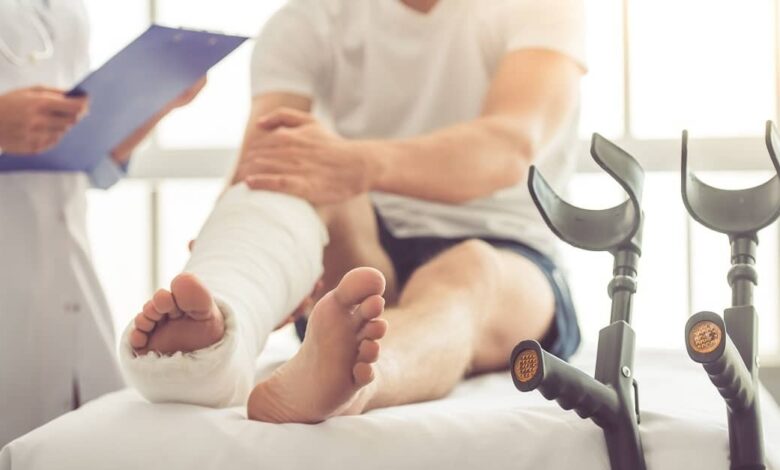What to Do if You Find Yourself Dealing With a Personal Injury

Accidents can happen suddenly and without warning, leading to physical, emotional, and financial repercussions. Understanding what steps to take in the aftermath is crucial for safeguarding your well-being and protecting your legal interests. This guide provides a comprehensive overview of the key actions to consider when faced with a personal injury, offering practical insights to navigate the complexities that may arise.
Assess Your Safety and Seek Medical Attention
Upon experiencing a personal injury, prioritize your safety by promptly assessing the immediate surroundings for potential hazards. To prevent more damage, go to a safe place and, if necessary, help the other parties involved. Simultaneously, gauge the severity of your injuries and consider seeking professional medical attention, regardless of the perceived magnitude. Obtaining prompt medical care not only addresses immediate health concerns but also establishes a crucial foundation for any future legal or insurance claims. It is essential to document injuries accurately and obtain medical records, contributing to the substantiation of your case. Act swiftly in securing medical assistance, as delayed treatment may adversely impact both your health and the subsequent claims process.
Report the Incident and Gather Information
Following a personal injury, it is imperative to report the incident promptly to the relevant authorities, such as law enforcement or property owners, depending on the circumstances. Filing a report guarantees the creation of an official record, which can be important in legal and insurance contexts. Accompany this with the concurrent collection of pertinent incident data. This includes obtaining contact details and statements from witnesses, as well as capturing photographic evidence of the scene from different perspectives. The documentation of details such as time, date, and location is instrumental in establishing a comprehensive account of the events, providing a solid foundation for any future claims or legal proceedings.
Preserve Evidence and Document the Scene
Take care to safeguard any items or materials relevant to the incident, such as damaged belongings or equipment. This includes clothing worn at the time, which may bear evidence critical to your case. Furthermore, thoroughly document the scene by capturing photographs from various angles, highlighting any contributing factors or conditions. This visual record can greatly support your account by providing concrete evidence of the events leading up to the accident. By preserving evidence and methodically documenting the scene, you enhance the credibility of your case and provide valuable support for any ensuing legal or insurance claims.
Identify Potential Witnesses and Obtain Statements
Actively seek out individuals who may have witnessed the events leading to the injury, collecting their contact information for future communication. Encourage witnesses to give in-depth accounts of what they saw when you approach them. These statements serve as valuable corroborative evidence, strengthening the overall narrative of the incident. Timely communication with witnesses is essential to ensure accurate recall of events and to include their perspectives in the broader documentation of the case. By diligently gathering witness statements, you contribute to the establishment of a factual and robust foundation for any legal or insurance proceedings related to personal injury.
Speak with a Personal Injury Lawyer
In order to navigate the complexities of potential claims and understand your rights, it is imperative that you get legal counsel while dealing with a personal injury. An Atlanta personal injury lawyer, in particular, can provide significant experience in evaluating the strength of your case and assisting you with the legal procedure. Their insights can prove instrumental in determining liability, evaluating damages, and strategizing the most effective course of action. By consulting with a qualified personal injury attorney in Atlanta, or your area, you equip yourself with the necessary support to pursue fair compensation and ensure that your rights are safeguarded throughout the legal proceedings.
Keep Detailed Records and Communicate Strategically
Keep detailed documentation of all medical treatments, expenses, and any related correspondence, ensuring a comprehensive record of the aftermath. This thorough documentation serves as a crucial reference point throughout legal and insurance processes. When communicating with relevant parties, exercise caution in divulging information, and consider consulting with your attorney before providing statements. By strategizing your communication, you minimize the risk of unintentionally compromising your case. Clear, detailed records and strategic communication contribute significantly to the effectiveness of your legal representation, enhancing your ability to pursue and secure appropriate compensation for the damages incurred.
Conclusion
By prioritizing your safety, promptly reporting incidents, and preserving crucial evidence, you establish a solid foundation for any potential claims. Identifying and obtaining statements from witnesses contributes to a comprehensive account of events, reinforcing your case. Consulting with a personal injury attorney provides the expertise necessary to assess the strength of your case and guide you through the legal intricacies.



